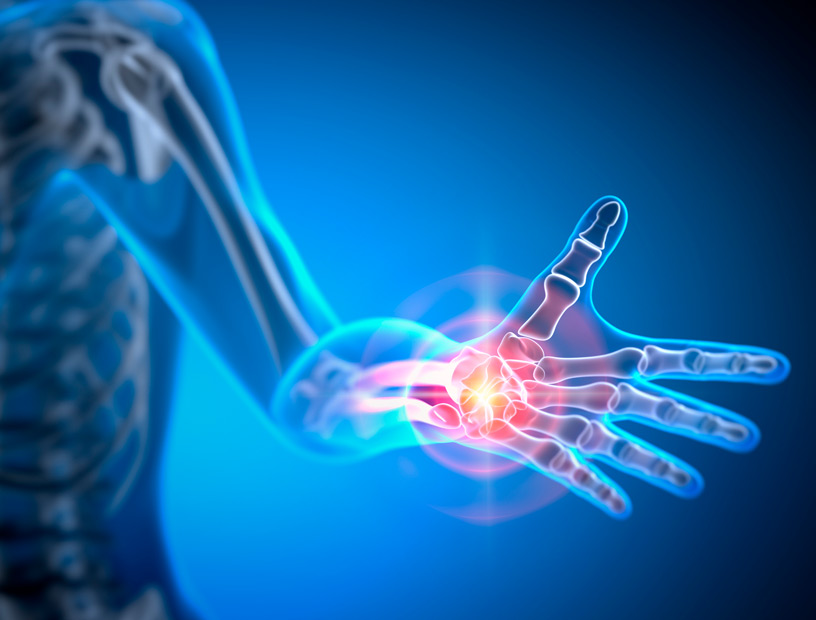
Turn to the skilled team at Orange County Orthopedic Clinic for hand surgery.
From grasping and reaching, to texting and shampooing, the various tasks that hands perform every day require assistance from several different parts. If you’ve sustained an injury or you’re living with a condition that’s making it difficult to perform tasks without extreme pain or persistent discomfort, hand surgery may be an option. Your hands are made up of an assortment of:
- Muscles
- Bones
- Joints and tissues
Joint Replacement
Arthroplasty, or joint replacement, is a type of hand surgery performed on patients with severe arthritis affecting the hand. The procedure involves replacing an affected joint with an artificial one that can be made of synthetic materials or the patient’s own tissue.
Nerve Repair

Severe damage to any of the three main nerves of the hand (ulnar, median, and radial nerves) is sometimes treated surgically. The specific technique will depend on the extent of the damage to the nerve. Some procedures involve reattaching a nerve to another adjacent one or performing a nerve graft to restore sensation or reduce pain.
Tendon Repair
Often the result of injury, tendon damage to the hand be a complicated procedure. Tendons can be affected by severe infection or if one or more of these fibers is torn or completely severed. Hand surgery to repair damaged tendons is sometimes performed in stages, with an initial operation to repair primary damage and subsequent procedures to correct related issues.
Closed Reduction and Fixation
Fractures in any part of the hand may be treated with closed reduction and fixation. The purpose of this type of surgery is to restore proper alignment of bones and joints that have been fractured. Wires, splints, casts, or rods may be used to prevent the hand from moving as it heals following surgery.
Infections of the Hand
Hand infections are often treated with antibiotics and rarely required surgery. If infections of the hand are severe, however, surgical drainage may be necessary, especially if an abscess develops in the hand. Surgery of this nature is usually designed to encourage drainage and remove accumulated pus and other fluids.
Preparing for Hand Surgery
Preparations depend on the reason for the surgery. If a procedure is planned in advance, medications sometimes needed after surgery may be prescribed ahead of time and arrangements may be made for post-surgery rehabilitation and physical therapy to restore full functions and range of motion of the affected hand as tissues heal.
Recovering from Hand Surgery
Patients will receive individual instructions following surgery. Recovery usually includes exercises to restore flexibility and encourage optimal usage of the affected hand. Therapy may also involve nerve stimulation, massage therapy to encourage healthy circulation, and the use of heat therapy to soothe recovering muscles or tendons of the hand.
Hand surgery often becomes a consideration when there has been a clear injury to one or both hands not likely to respond to any other type of treatment or when conservative treatments have failed. Recovery from hand surgery varies depending on the complexity of the procedure performed and factors such as overall health, although many patients respond well to physical therapy and other post-surgery requirements.

on caring for specific orthopedic needs.
